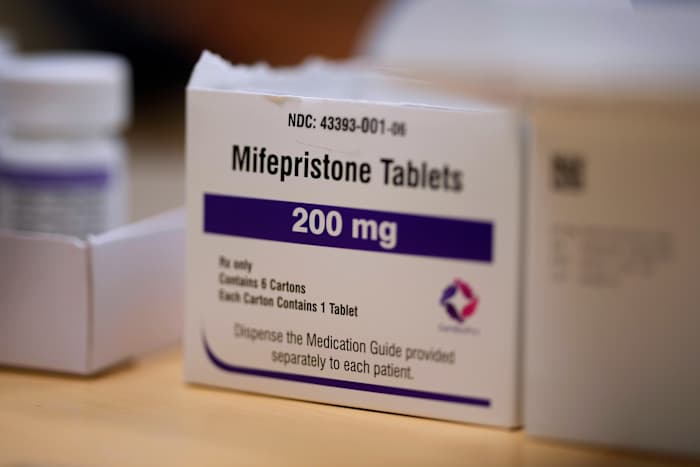In a case that has gripped the nation and reignited the debate over abortion rights, a Louisiana woman has pleaded not guilty to felony charges after allegedly obtaining abortion pills from a New York doctor for her teenage daughter. This landmark case not only challenges Louisiana’s strict abortion laws but also tests the boundaries of interstate legal jurisdiction. As we delve into the intricacies of this case, we’ll explore the legal, medical, and ethical dimensions that have made it a focal point in the ongoing battle over reproductive rights.
The Indictment and the Plea
In January, a grand jury in West Baton Rouge unanimously indicted a 39-year-old Louisiana woman on charges of criminal abortion by means of abortion-inducing drugs. The woman, whose identity remains undisclosed to protect her minor daughter, entered a plea of not guilty on Tuesday. This legal battle stems from an incident where the woman allegedly requested abortion medication online from Dr. Margaret Carpenter, a New York-based doctor, without a direct consultation with her daughter.
The Incident and Its Aftermath
According to District Attorney Tony Clayton, the woman received a “cocktail of pills” from Dr. Carpenter and instructed her daughter to take them. Following the ingestion of the pills, the teenager experienced a medical emergency, prompting a 911 call and subsequent hospitalization. During the emergency response, a police officer discovered the involvement of the pills and initiated an investigation that traced the drugs back to Dr. Carpenter.
Legal and Medical Context
The case has thrust Louisiana’s near-total abortion ban into the national spotlight. In a significant move last year, Louisiana became the first state to reclassify mifepristone and misoprostol, the drugs used in the abortion, as “controlled dangerous substances.” This reclassification has far-reaching implications for both providers and patients seeking abortion care.
The Safety and Efficacy of Abortion Pills
The American College of Obstetricians and Gynecologists has long maintained that mifepristone and misoprostol are safe and effective, backed by decades of evidence. These medications have become the most common method of abortion in the United States, particularly since the overturning of Roe v. Wade, which has led to increased political and legal battles over abortion access.
The Cross-State Legal Battle
The case has escalated into a cross-state legal battle, pitting Louisiana’s abortion laws against New York’s shield laws. The Baton Rouge jury also indicted Dr. Carpenter, who faces the same felony charge as the Louisiana woman. This has prompted Louisiana Governor Jeff Landry to issue a formal extradition order to New York Governor Kathy Hochul, demanding that Dr. Carpenter be handed over to face Louisiana’s justice system.
New York’s Stance and the Extradition Refusal
Governor Hochul, however, has firmly refused to comply with the extradition order, stating, “Not now, not ever.” This refusal has added another layer of complexity to the case, highlighting the tensions between states with contrasting views on abortion rights.
Broader Implications and Public Reaction
The case has sparked widespread public debate and concern over the accessibility of abortion care, particularly in states with restrictive laws. It has also raised questions about the criminalization of medical professionals who provide abortion services, even across state lines.
The Impact on Abortion Access
Since state bans on abortion have taken effect, the number of abortions performed through online prescriptions and telemedicine has increased significantly. This case underscores the challenges faced by individuals seeking abortion care in states with restrictive laws and the lengths to which they may go to access these services.
Potential Penalties and Legal Consequences
Under Louisiana law, physicians convicted of performing an illegal abortion, including those using pills, face severe penalties. These include up to 15 years in prison, fines up to $200,000, and the loss of their medical license. Additionally, Dr. Carpenter has been ordered by a Texas State District Judge to pay a $100,000 penalty and attorney’s fees for allegedly violating Texas law by prescribing abortion medication via telemedicine.
The Future of Abortion Legislation
As this case unfolds, it may set precedents for future legal battles over abortion rights and the use of telemedicine in reproductive health care. It also raises critical questions about the balance between state laws and individual rights, and the role of the judicial system in navigating these complex issues.
Personal Stories and Ethical Dilemmas
Beyond the legal and political dimensions, this case brings to light the personal stories and ethical dilemmas faced by individuals involved in abortion decisions. The mother at the center of this case made a decision she believed was in the best interest of her daughter, only to find herself facing felony charges. Her story is a poignant reminder of the human impact of abortion laws and the difficult choices families sometimes face.
Support and Opposition
The case has garnered both support and opposition from various groups. Pro-choice advocates argue that the criminalization of abortion care further marginalizes vulnerable populations and restricts access to essential health services. On the other hand, pro-life groups see this as a necessary step to protect the rights of the unborn and uphold state laws.
The Role of Telemedicine in Abortion Care
Telemedicine has emerged as a crucial tool for providing abortion care, especially in states with restrictive laws. The ability to prescribe and deliver abortion medication online has increased access to services for many individuals. However, this case highlights the legal risks associated with such practices, particularly when they cross state lines.
Regulatory Challenges
The regulation of telemedicine in abortion care remains a contentious issue. States like Louisiana and Texas have taken steps to limit the use of telemedicine for abortion, while others have moved to protect these services. The outcome of this case could influence future regulations and the availability of telemedicine for reproductive health care.
Looking Ahead: What This Case Means for the Future
As the legal proceedings continue, the case of the Louisiana woman and Dr. Carpenter will likely have far-reaching implications for abortion rights, telemedicine, and interstate legal jurisdiction. It serves as a stark reminder of the ongoing battles over reproductive rights and the need for clear, compassionate, and just policies that respect the rights and well-being of all individuals involved.
Advocacy and Action
In the wake of this case, advocacy groups on both sides of the abortion debate are mobilizing to influence policy and public opinion. Pro-choice organizations are calling for increased protections for abortion providers and patients, while pro-life groups are advocating for stricter enforcement of abortion laws. The outcome of this case could galvanize these efforts and shape the future landscape of reproductive rights in the United States.
Conclusion: Navigating a Complex Legal and Ethical Landscape
The case of the Louisiana woman who pleaded not guilty to felony charges for allegedly obtaining abortion pills for her teenage daughter is more than just a legal battle; it is a reflection of the broader societal struggle over abortion rights. As we continue to follow this case, it is crucial to consider the human stories behind the headlines and the ethical questions that arise when personal decisions intersect with public policy.
This case has highlighted the complexities of abortion laws, the role of telemedicine in reproductive health care, and the challenges of navigating a legal system that spans state lines. It has also underscored the need for empathy, understanding, and a commitment to finding solutions that respect the dignity and rights of all individuals involved.
As we move forward, it is essential to engage in open and honest dialogue about abortion, to advocate for policies that prioritize the health and well-being of patients, and to support those who find themselves at the center of these difficult and often life-altering decisions. Only through such efforts can we hope to create a more just and compassionate society for all.
Source: internewscast.com

